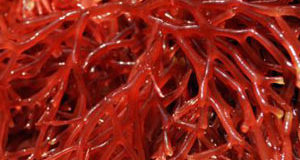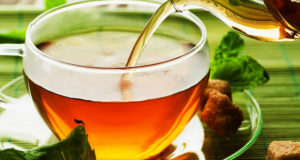
Apple nutrition facts:
Apples are a good source of vitamin A and C and ward off colds and infections. They are powerful blood purifiers and benefit the blood and lymphatic systems.
Apple juice is a wonderful cleanser, great for a weight loss diet and useful as a general tonic.
One medium size apple as around 100 calories.
Grapes, fresh pineapple and kiwi fruits are fabulous for your skin.
Grape nutrition facts:
Grapes are often used in elimination and weight loss diets because of their powerful cleansing action and their ability to stimulate the metabolism. The high magnesium content promotes good bowel movement and proper kidney function.
Grape juice is also a good blood and liver cleanser and eliminates unwanted uric acid from the body. Grapes are high in potassium, which aids kidney function, strengthens the heartbeat and keeps the skin looking fresh and healthy.
Grapes are well known for cleansing the system. Dark grapes are high in iron, which makes them good blood builders. A hand full off grapes on your weight loss diet is a good snack.
There’s around 100 calories in 1 cup of grapes.
Pineapple nutrition facts:
Because of their high vitamin C, content pineapples are considered to be a protective fruit. The juice is good for reliving constipation and poor digestion and the combination of vitamin C. Acids and enzymes make pineapples highly eliminative and a great boost for detox diets.
Pineapples can also be used to soothe sore throats. Beta-carotene, folic acid, potassium, iodine, calcium and magnesium are some of the nutrients found in pineapple.
Kiwi nutrition facts:
Kiwi contains twice the amount of vitamin c than oranges. They are also rich in potassium, which helps to stave off colds and flu. Kiwi fruits should be firm but not hard.
Lemon and Lime nutrition facts:
Lemons and lime are very high in vitamin C. They contain up to four times the amount of citric acid as oranges or grapefruit.
This high citric acid content is very good for getting rid of toxins. Lemons are also good for soothing sore throats and are widely used for colds and flu.
Mango nutrition facts:
Mangoes are one of my favourite. They are rich in beta-carotene, vitamin C and potassium. The riper the mango the more beta-carotene it will contain. They are great blood cleansers and bodily disinfectants and can be helpful to throw off body odour.
Orange nutrition facts:
Oranges are one of the richest sources of vitamin C. they help to protect against a variety of conditions, from colds and flu to heart disease and strokes that gives them very high health ratings. Their nutrients help prevent premature wrinkles and saggy skin.
When juicing peel the skin but leave the pith on as this is where all the good nutrients are. Other nutrients include vitamin A and the b-complex vitamins, bioflovonoids, pectin, amino acids, potassium, zinc and phosphorous.
Vitamin C helps the body to absorb iron, so a glass of orange juice a day can actually double the amount of iron available for use in the body. The high citric acid content in oranges is the most effective in cleansing the gastrointestinal tract and eliminating toxins and acid waste in cells. For this reason, orange juice is often included in eliminative diets.
Banana nutrition facts:
Whenever I’m shopping and I feel hungry the first thing that comes to mind is a banana. Everyone I know likes their bananas a little different. I like mine ripe with freckles on, some like them soft and very sweet, others when they’ve just turned. If you boil them when they’re green you will get more iron from them at that stage.
Bananas are very nutritious, they contain vitamin C and dietary fibre. They have no fat or cholesterol. The vitamin C that they contain helps the body defend and heal against infection.
Potassium is the mineral in bananas that builds muscles. Having a banana before taking part in any physical exercise will give you that instant boost and energy.
The body burns off calories from carbohydrates more easily and quickly than calories from protein or fat. They are free from sodium and very rich in potassium. A banana and a glass of water can keep you going for two hours before feeling hungry.
1 medium banana has around 100 calories.
Pear nutrition facts:
Pears have a high content in vitamin c and B vitamins and the minerals potassium, phosphorus and iron, pear juice is good for the digestive system, and helps to normalise the bowel. It is a valuable addition to elimination diets because of its mild diuretic and laxative effects. Pears are one of the best urinary and gastrointestinal cleansers because of its high level of pectin.
Strawberry nutrition facts:
Strawberries are also a good source of vitamin C, beta-carotene potassium, calcium and iron. With their cleansing values they are good for eliminative diets too. They are very high in sodium, it helps keep you youthful, and their content in potassium is also good for the skin. Potassium and iron helps to strengthen the blood. The high levels of beta-carotene and vitamin C helps to keep of colds and fights infections and to prevent cancer and heart disease.
Peach nutrition facts:
Peaches are a good source of beta-carotene. They also contain vitamin C some of the B vitamins and minerals such as calcium, iron, phosphorus, potassium and sodium. Peach juice is wonderful for alkalinising and cleanses the intestinal tract and encourages good bowel movement. Drinking pear juice will improve your skin and eyesight and help prevent against cancer and heart disease.
Apricot nutrition facts:
Apricots are exceptionally high in beta-carotene compared with all the other fruits; therefore they stand out as cancer fighters. They can help prevent cancer of the lung, oesophagus, stomach, bladder and throat, and their high Vitamin C also protects against colds and flu.
Blackberry nutrition facts:
Blackberries, a rich source of vitamin C with good amounts of beta-carotene, B vitamins, vitamin E, and the minerals potassium, calcium and magnesium, which makes them invaluable in cases of heart disease, cancer and high blood pressure and premenstrual tension.
Blackberries also have a high iron content, which makes them one of the finest blood builders. Mixes well with prunes.
Cranberry nutrition facts:
Cranberry juice is used for its healing properties as a natural diuretic and urinary tract cleanser. Cranberries are a source of vitamin C, beta-carotene, quinine, iron and potassium. The quinine helps to maintain the health of the bladder, kidneys and prostate and has been found effective in preventing prostate cancer. The high vitamin C and beta-carotene content helps ward of colds and flu in the winter months.
Grapefruit nutrition facts:
Grapefruit belongs to the citrus family, which includes lemons, oranges, limes, tangerines, clementines and sultanas. Grapefruit is also high in vitamin C are good for warding of colds, and helps prevent bleeding gums.
Grapefruits are also a good source of beta-carotene, phosphorus, calcium and potassium. High levels of pectin are found in the white pith. It’s known for controlling cholesterol levels and helping with digestive problems.
Bioflovanoids are also found in the pith and have a protective effect on vitamin C anti-inflammatory properties and protect blood vessel capillaries.
Prune nutrition facts:
Prunes are a variety of dried plums and are widely used as a natural laxative. Prune juice is just as potent as the whole fruit and a much healthier way to treat constipation than using synthetic laxatives.
Raspberry nutrition facts:
Raspberries are good cleansers especially of mucous and catarrhal conditions. They are natural astringents and can help sort out stomach problems and gum disease Raspberries are high in vitamin A and C and provide useful amounts of potassium, calcium and magnesium, which make them invaluable in cases of heart problems, fatigue or depression. A raspberry juice cocktail before meals stimulates the appetite and aids digestion.
Papaya nutrition facts:
The one thing that distinguishes papaya from the other fruit is its amazing digestive properties. Papayas are rich in papain, a protein- digesting enzyme, which is so effective that it is used in meat tenderisers and digestant.
It’s good for stomach ulcers and fevers and many people believe papayas are a great rejuvenator, combating premature ageing. Also they have the ability to restore a healthy balance of intestinal bacteria, after the use of antibiotics.
It makes an effective laxative and cleanser to the liver, kidneys and intestines and has the ability to dissolve excess mucus in the body.
Papayas are rich in beta-carotene vitamin C and E and the minerals calcium, phosphorus and iron.
Melon nutrition facts:
Melons belong to the same family as cucumbers. They both have a cooling effect on the body. Melons are an excellent fruit for juicing because of their high water content, which makes them first class diuretic, and good kidney cleanser and skin purifier.
As in many other fruit and vegetables most of the nutrient lie in the flesh right next to the skin, so be careful not to lose this part when peeling. There are many varieties of melons to choose from including cantaloupe, honeydew, galia and watermelon. Cantaloupes are the most nutritious and are high in beta-carotene, vitamin C and digestive enzymes.
They are highly recommended by the American Cancer Society as a healthful agent against intestinal cancer. Watermelons have the highest water content and are great natural diuretics as well as being packed with skin-enriching minerals such as zinc and potassium.
Melons should be eaten alone or on an empty stomach as it ferments very quickly in the stomach.

Source by Jean Griffiths
 Vitamin Agent The Health & Naturalistic Source
Vitamin Agent The Health & Naturalistic Source





